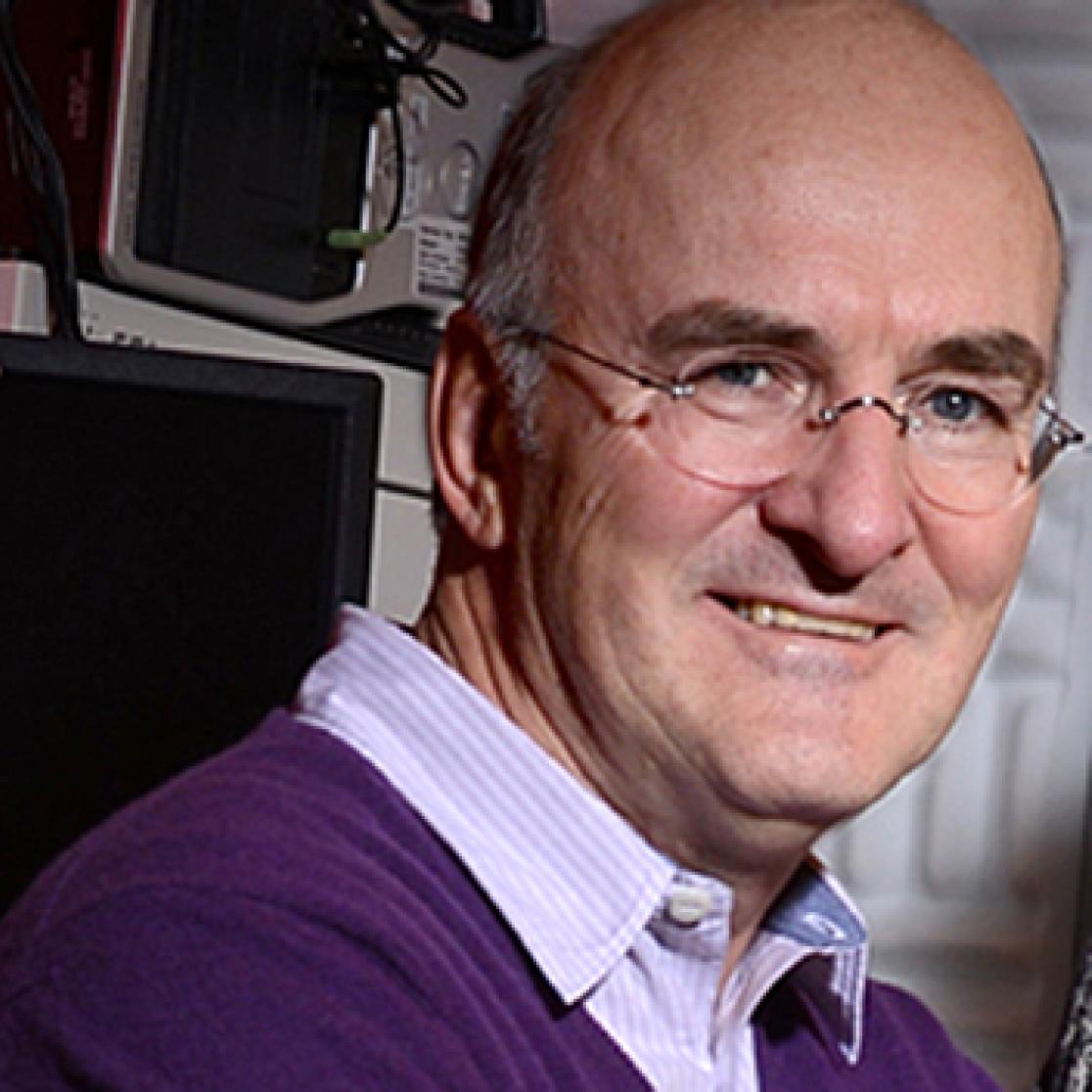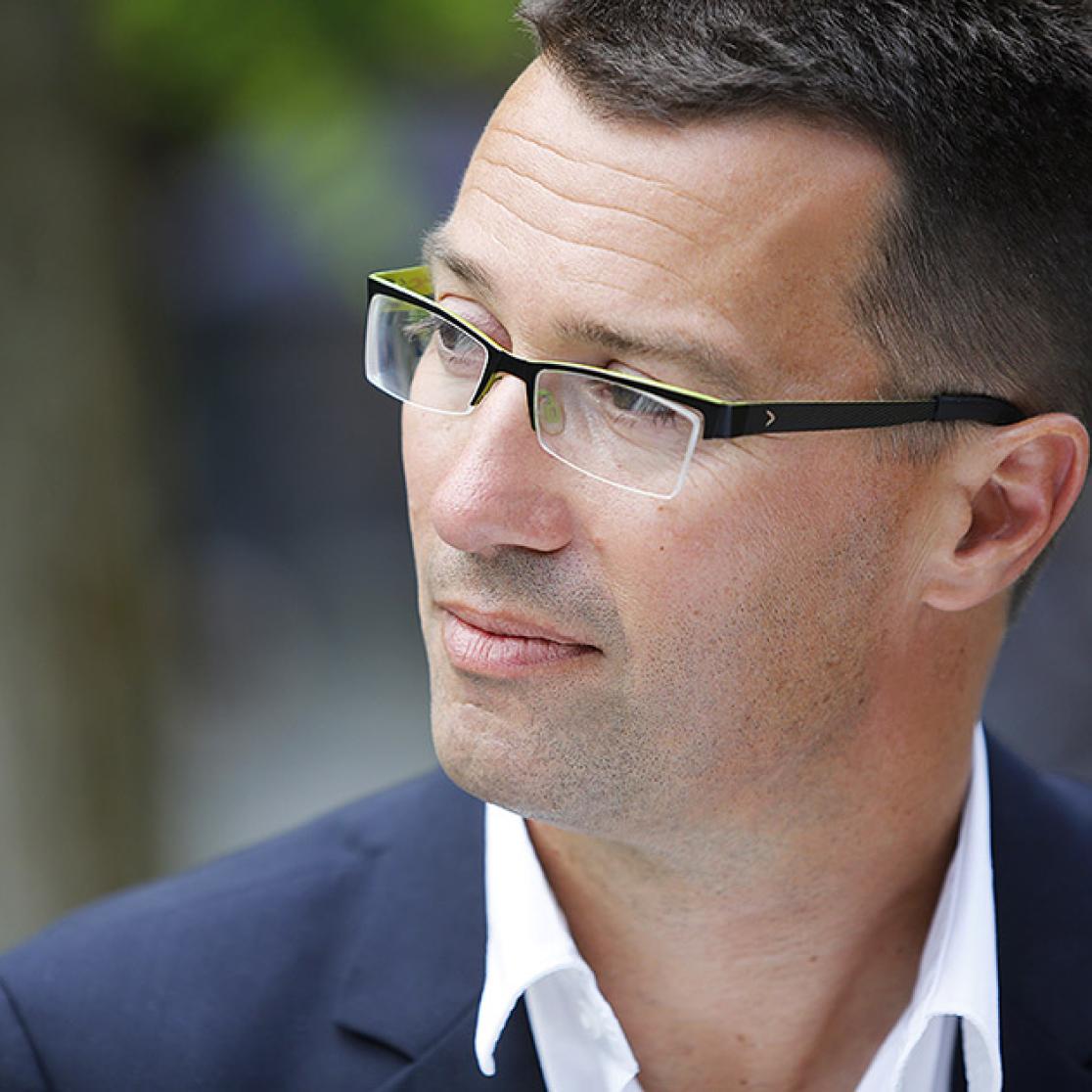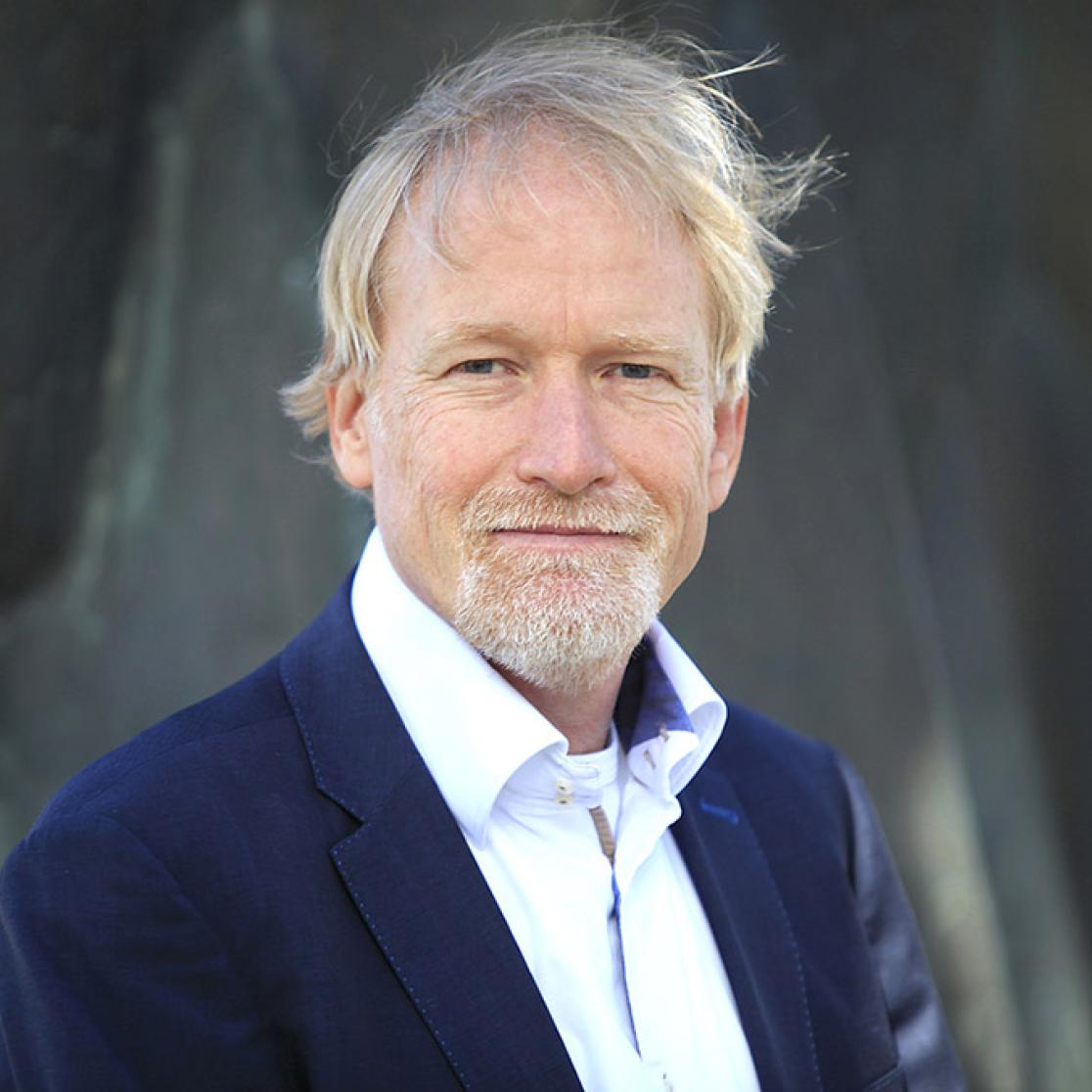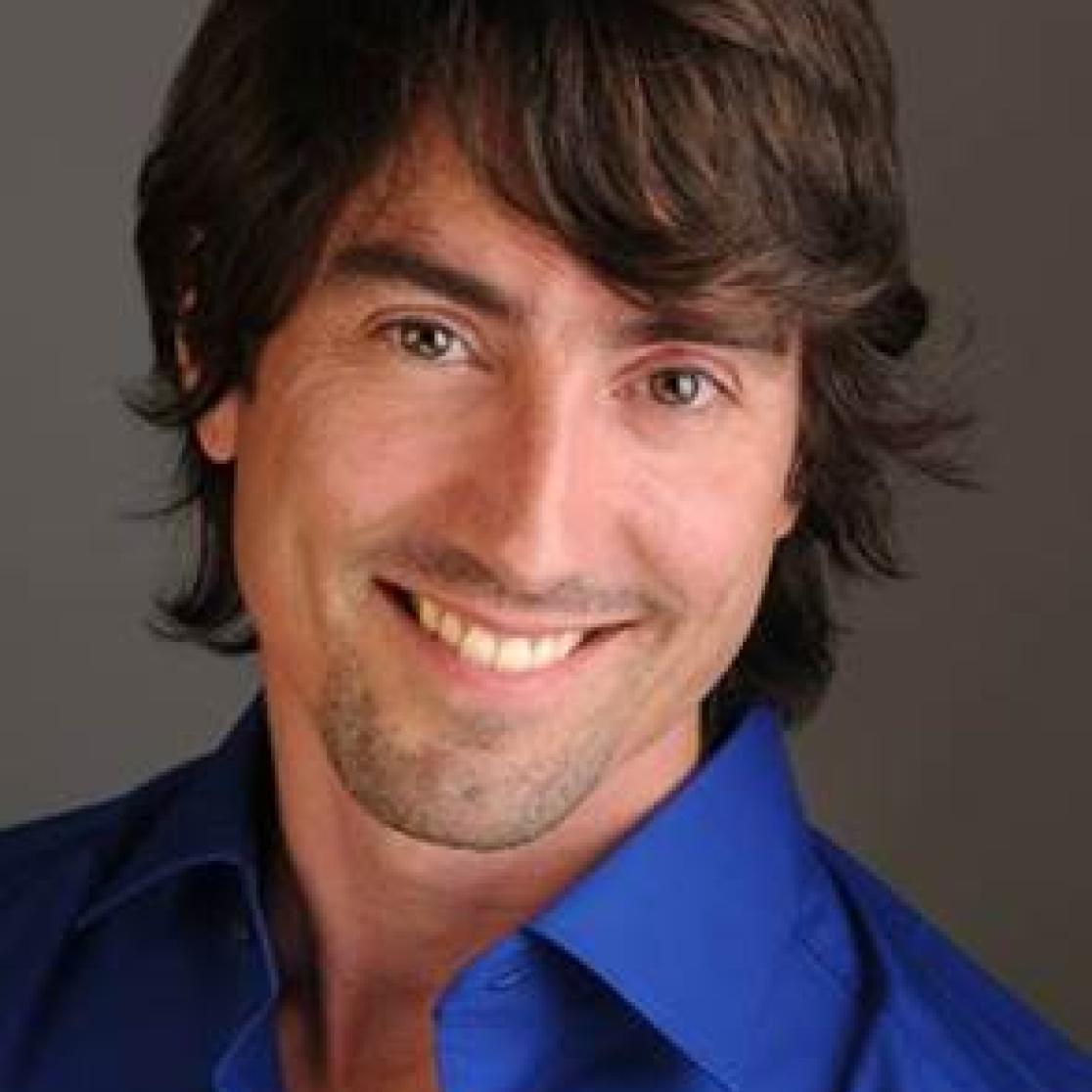Distinguished university professors
In recent years the special position of distinguished university professor has been introduced at a number of Dutch universities. Distinguished university professors have high academic stature, standing for innovative education and research. They therefore enjoy a number of privileges, such as partial exemption from administrative tasks and greater freedom in spending research funds. Their role is to provide impetus for scientific developments that cross the borders of traditional disciplines, and to play a leading part in academic and social debates.
Peter Peters
Peter Peters is UM’s first distinguished university professor. This professor in Nanobiology will help the university to pursue its ambitions in the fields of sciences and imaging. This ‘Limburg Chair’ is supported by the Province of Limburg in an effort to foster valorisation in collaboration with the business sector and communication with a wide audience.
Peters studies the immune system at a nanomolecular level, with the aim of gaining greater insight into the development of different forms of cancer and infectious diseases such as tuberculosis. At UM, he will establish the Institute of Nanoscopy. Peters obtained his PhD in Utrecht and has since spent his career improving fundamental knowledge of the functioning of cells at the nano level, first in the US and for the last 15 years at the Netherlands Cancer Institute/Antoni van Leeuwenhoek Hospital in Amsterdam. Peter Peters is also co-director of the Maastricht MultiModal Molecular Imaging Institute (M4I), together with Ron Heeren.
In addition to his research, Peters will be involved in teaching at UM. In his previous posts at the universities of Utrecht and Amsterdam, he was named ‘lecturer of the year’ three times.
For more information, please visit the M4I Division of Nanoscopy website.

Ron Heeren
Ron Heeren was appointed distinguished university professor and Limburg Chair in the field of molecular imaging with an inter-faculty research programme. Heeren has been working successfully on innovative molecular imaging techniques, including the ‘mass microscope’. With the mass microscope, researchers are able to directly, quickly and with precision determine in a single experiment the location and identity of thousands of molecules on cells and tissue samples. This diagnostic information is critical for personalized medicine, which is the healthcare of the future.
Heeren obtained his PhD on plasma-surface interactions at the University of Amsterdam in 1992. After working as a postdoctoral researcher on mass spectrometry for two years, he joined the MOLART research group at the FOM institute of AMOLF (part of the Dutch Organization for Scientific Research, NWO). Four years later he started a research group focusing on the development of mass spectrometry imaging. A large part of this research group is making the move with him to Maastricht. He was appointed professor at the Faculty of Chemistry in Utrecht in 2001. Ron Heeren is also co-director of the Maastricht MultiModal Molecular Imaging Institute (M4I), together with Peter Peters.
For more information, please visit the M4I Division of Imaging Mass Spectrometry website.

Clemens van Blitterswijk
Professor Van Blitterswijk specialises in bone and cartilage repair, with a particular focus on developing new technologies for regenerative medicine. These include “smart" biomaterials that lead to tissue regeneration through the patient’s own stem cells. He will be operating within the new MERLN Institute.
A member of the Royal Netherlands Academy of Arts and Sciences (KNAW), Van Blitterswijk was recently named the most entrepreneurial scientist in the Netherlands. Besides research he will also be involved in teaching; he is the editor of a popular textbook, Tissue engineering, re-released in a revised edition by Academic Press in 2014.
For more information, please visit the MERLN Institute website.

Michel Dumontier
Michel Dumontier is a distinguished university professor in the field of Data Science. His research aims to develop computational methods for scalable integration and reproducible analysis of FAIR (Findable, Accessible, Interoperable and Reusable) data across scales - from molecules, tissues, organs, individuals, populations to the environment. His group leverages semantic web technologies with machine learning and network analysis to tackle challenging problems in the areas of drug discovery and precision medicine. Dr Dumontier will lead a new Institute for Data Science that will act as a focal point for data science research and teaching across the University.
For more information please visit the Institute of Data Science website or read the press release.
